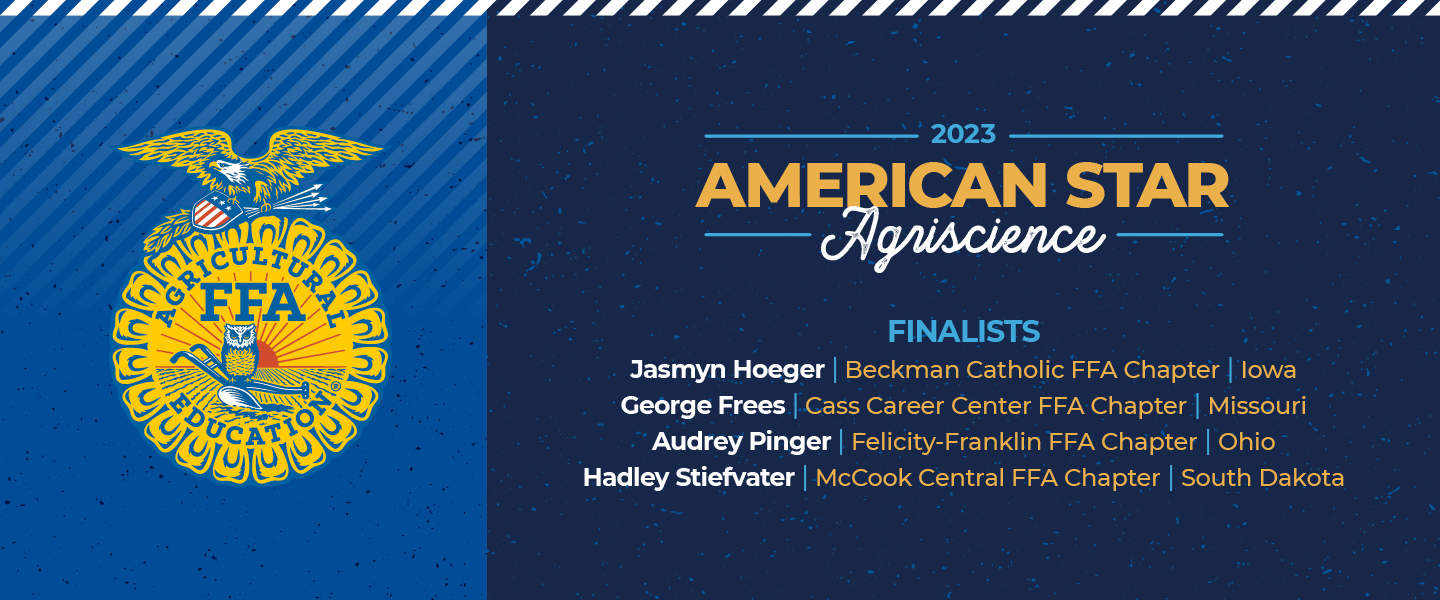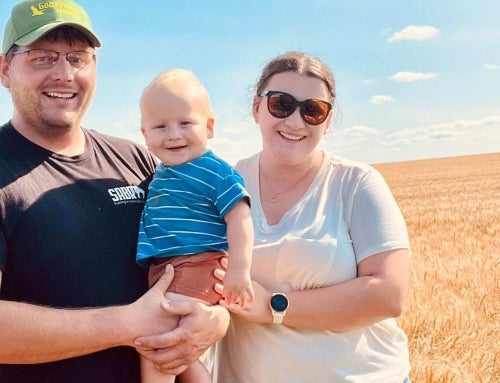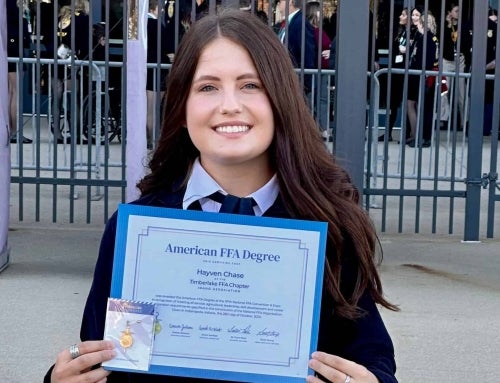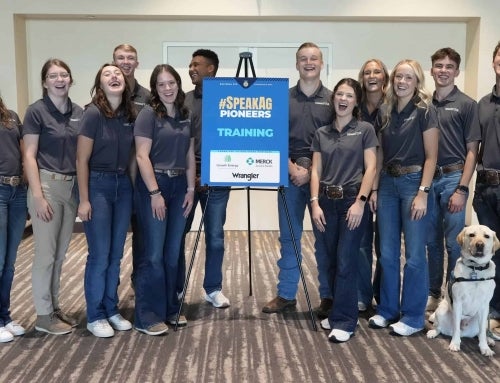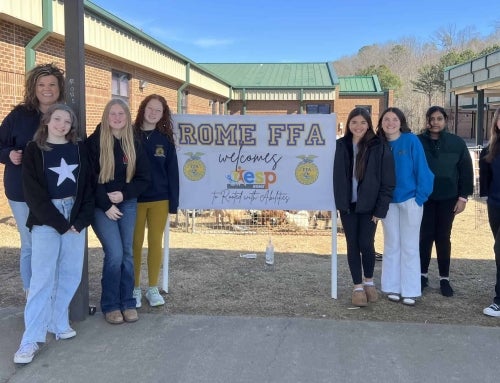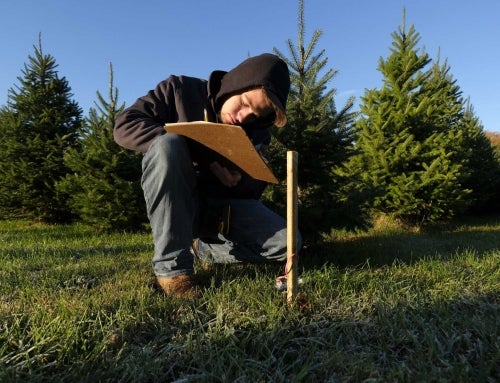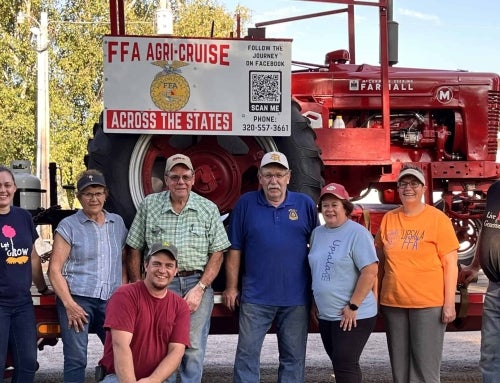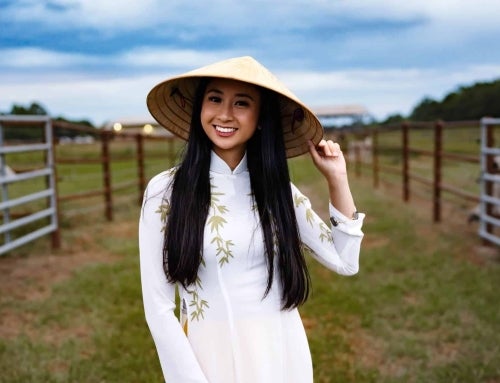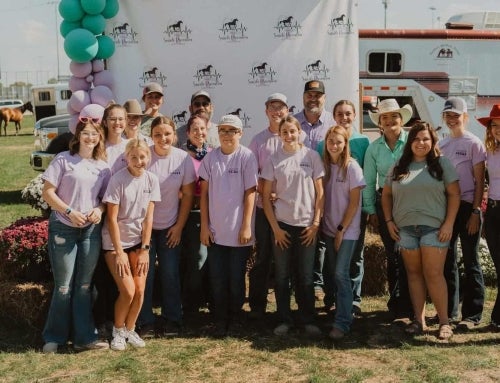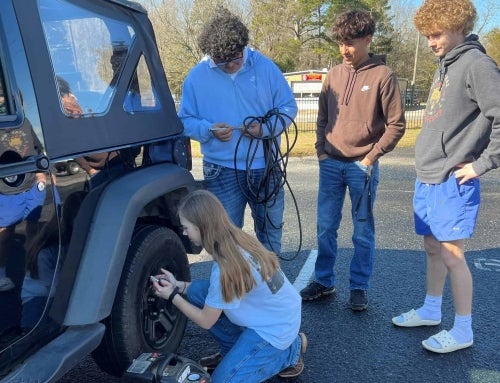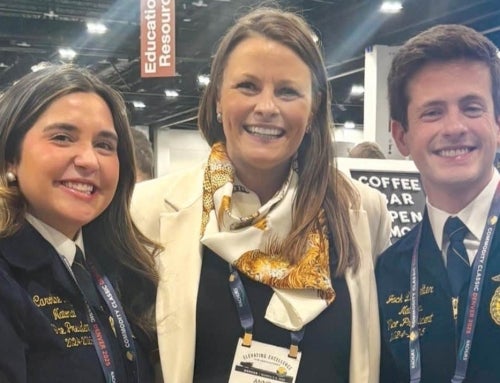Each year at the National FFA Convention & Expo, four FFA members are honored with American Star Awards for outstanding accomplishments in FFA and agricultural education.
The American Star Awards, including American Star Farmer, American Star in Agribusiness, American Star in Agricultural Placement and American Star in Agriscience, are presented to FFA members who demonstrate outstanding agricultural skills and competencies through completion of supervised agricultural experience (SAE). A required activity in FFA, an SAE allows students to learn by doing, by owning or operating an agricultural business, working or serving an internship at an agriculture-based business, or conducting an agriculture-based scientific experiment and reporting results.
Other requirements to achieve the award include demonstrating top management skills; completing key agricultural education, scholastic and leadership requirements; and earning an American FFA Degree, the organization’s highest level of student accomplishment.
The American Star in Agriscience is awarded to the FFA member who demonstrates the top agriscience-based SAE in the nation. Here are the 2023 winner and finalists for American Star in Agriscience:
WINNER: George Frees, Missouri
A trip to Jamaica gave George Frees the inspiration to study a plant not commonly found in his native Missouri: sugarcane.
“I was doing a marine biology camp there and was able to speak to some local sugarcane growers,” Frees said. “It immediately fascinated me that you could grow this nine-, 10-, sometimes even 15-foot-tall plant.”
When Frees started an agriscience-based supervised agricultural experience (SAE) as a member of Cass Career Center FFA in Missouri, he decided to pair sugarcane cultivation with another interest.
“Something that’s always been very important to me is environmentalism and proper stewardship of the environment,” Frees said. “So it just became a very natural thing to me to combine my interest in sugarcane and my interest in the production of renewable fuels.”
Specifically, Frees studied how treating sugarcane with gibberellic acid — a growth hormone sometimes applied to citrus fruits to promote cold tolerance — increases the amount of ethanol biofuel that can be produced from the plant.
“The main issue is sugarcane is simply not a largely popularized crop in the United States. There’s a somewhat limited growing zone,” Frees said. “But from the standpoint of ethanol production, sugarcane is far superior in labor intensity and cost (compared to corn).”
Frees has continued to act on his passion for crop science. He’s currently double majoring in biochemistry and plant sciences at the University of Missouri, where he’s the campus beekeeper and puts in hours in four different labs.
“I plan to pursue an M.D./Ph.D. program and work in the field called ethnobotany, which is looking at how native peoples around the world use medicinal plants and then developing new pharmaceuticals based off of that.”
Frees credits FFA as the organization that’s had the “single largest impact” on the trajectory of his life. In addition to his SAE, Frees participated in the Washington Leadership Conference and served as chapter vice president and parliamentarian.
“I firmly believe that without FFA, I would not have gotten the scholarship that I now hold and had all the opportunities for research that I take part in right now.”
FINALIST: Jasmyn Hoeger, Iowa
When Jasmyn Hoeger started her agricultural education journey, she found herself drawn to animal science. It made sense, since she grew up on a farm with swine, dairy cows and beef cattle.
“And part of our sophomore high school biology class, if you’re in the honors (program), you have to do a research project,” Hoeger said. “And that’s how I got exposed to research.”
So that year, as a sophomore member of Beckman Catholic FFA in Iowa, Hoeger began her agriscience supervised agricultural experience (SAE) with her first agriscience fair project.
“I have, firsthand, seen the imperative need for alternative treatments for a variety of things like ringworm, hairy warts and dehorning methods,” Hoeger said. “When I started research, I first started looking at trying to develop alternative treatments for each of these things.”
Her agriscience SAE has focused, in part, on using ultraviolet (UV) radiation to treat hairy warts and ringworm in cattle. For another project, Hoeger studied how UV radiation slowed down cell growth in E. coli and in the fibroblast cells of minnows. She used that information to develop an alternative dehorning method using UV radiation.
While Hoeger tried her hand at a variety of career development events (CDEs) — such as agribusiness and food science — throughout her time in FFA, she always found herself gravitating back to animal science and research.
“That’s how it really helped me realize, ‘OK, this is what I want to do, and this is what I love.’”
Now a sophomore in cellular and developmental biology at the University of Iowa, Hoeger works in an internal medicine lab in the Carver College of Medicine.
“Each of those things I did within my SAE in high school built a foundation that allowed me to get into a lab (where) I could start working with the genetic side of things and dig a lot deeper into treatments,” Hoeger said.
Hoeger said she plans on pursuing a Ph.D. and becoming a geneticist.
“I’m definitely heavily considering being an animal geneticist, to go back to those agriculture roots,” she said.
FINALIST: Audrey Pinger, Ohio
When Audrey Pinger of Felicity-Franklin FFA in Ohio was deciding what her agriscience-based supervised agricultural education (SAE) research should focus on, she went back to her childhood.
“I had done a little bit of gardening with my grandma, but I didn’t really understand much about how plants grew,” Pinger said. “It made sense for me.”
For the agriscience fair, Pinger completed four research projects on hydroponic vegetable production.
“The first one was whether vertical or horizontal hydroponic systems worked more effectively in yielding crop,” Pinger said. “And then I switched focus into whether hydroponic or soil was more effective.”
In her next two projects, Pinger studied how light intensity and water temperature affect photosynthesis in hydroponic plants.
Pinger was able to put this knowledge into practice with her placement SAE.
“I started a job at a local farm, and they had a nursery, but we had problems growing our micro greens,” Pinger said. “So, my research actually helped me build up the nursery so that we would be able to yield something from our plant operation. It actually became incredibly useful to me.”
Throughout her FFA experience, Pinger said the guidance she received from her advisors and older FFA members helped her decide what to study next and how to conduct her experiments with limited lab equipment. She’d go on to mentor younger students as they started their own agriscience projects.
Now, Pinger studies agriscience education at The Ohio State University with the goal of becoming an agriculture educator.
“I have always had this passion for helping others and coaching, but really getting to get in there and mentor these students and help them every step of the way helped me realize that I wanted to be an agriculture educator,” Pinger said.
FINALIST: Hadley Stiefvater, South Dakota
Hadley Stiefvater is no stranger to seeing agriscience in action. She grew up watching her father, a veterinarian, care for livestock.
“The kind of projects I’m drawn to are being able to solve real-world problems for people that are in the industry every day,” Stiefvater said. “A lot of that has stemmed from working at my family’s veterinary clinic, having that hands-on interaction with customers and listening to them ask my dad questions.”
In eighth grade, Stiefvater began taking agriculture classes and joined McCook Central FFA in South Dakota as a supplement to her homeschool education.
“Our first assignment, as our introduction to agriculture, food and natural resources, my ag advisor decided that she was going to have each student in that class create their own agriscience fair project,” Stiefvater said.
Stiefvater decided to study her family’s laying hens — she split them into two groups and fed them different types of feed and compared their egg production levels. Her project took first place at the South Dakota Agriscience Fair, and Stiefvater went on to win at the national agriscience fair that year.
“That was really new to me, but it really sparked my interest in research and the excitement for the agriscience fair program,” she said.
Since then, Stiefvater has completed a variety of research projects for her supervised agricultural experience (SAE). She has studied hemoglobin levels in piglets, salmonella reduction in dairy calves and how sows’ behavior changed with different gestation stanchion lengths.
All of this led to an internship with a clinical research company, where she learned how to take biological samples and do clinical observations on animals.
“I conducted one of my own projects through them,” she said. “They supplied the idea, and I structured the whole thing and was able to present my findings to a panel of important veterinarians and company leaders.”
Stiefvater’s FFA experience has inspired her to work in the realm of animal health after she graduates from South Dakota State University.
“I don’t know that I would’ve ever had the interest in research or expanded to some of the leadership opportunities that I’ve had by being able to go into FFA like that.”
The American Star Awards are sponsored by Cargill, Case IH, Elanco Animal Health and Syngenta. For more information on the awards, visit FFA.org.

